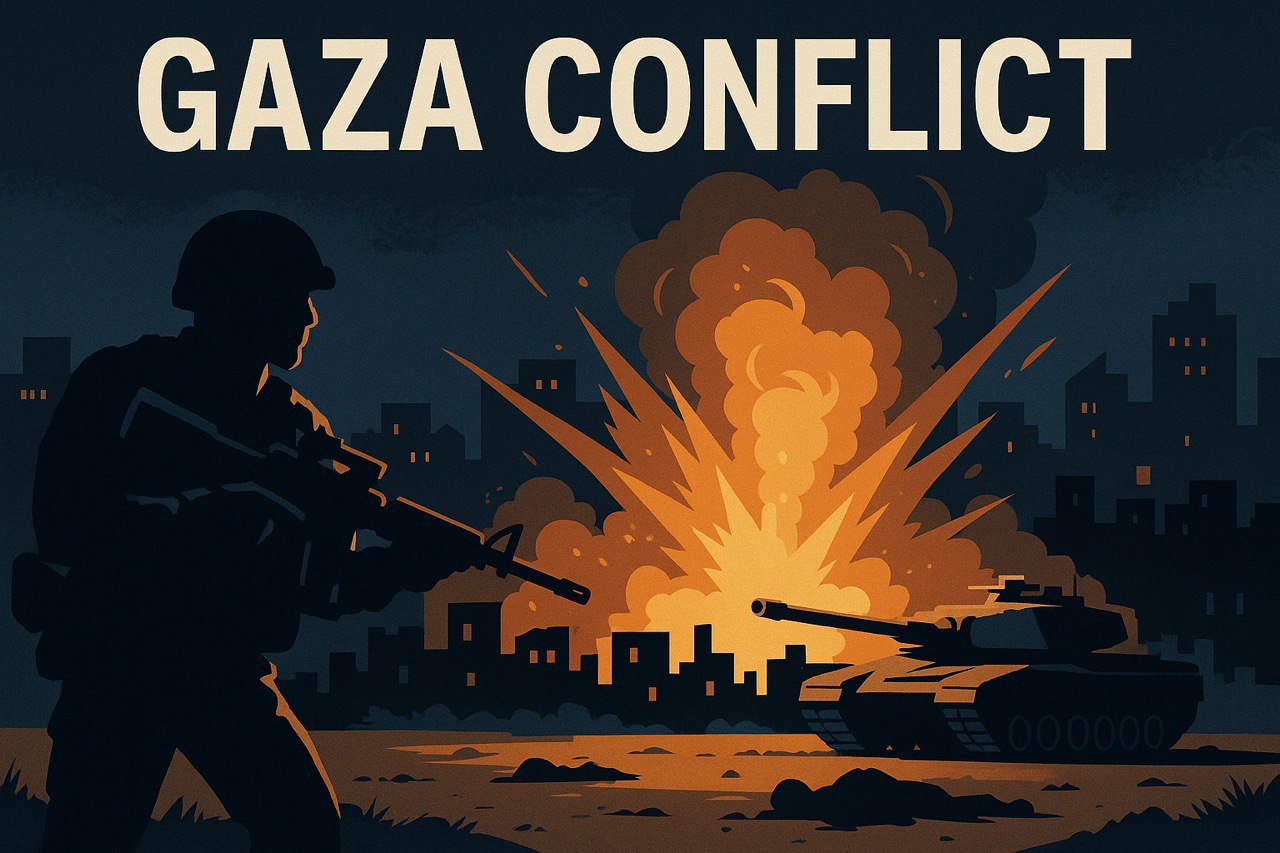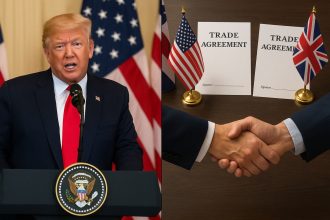The Israel-Gaza conflict, rooted in decades of territorial disputes, has seen a significant escalation as of May 5, 2025. The conflict intensified following Hamas’s attack on October 7, 2023, prompting Israel’s military response, including airstrikes and ground operations. Recent developments, particularly Israel’s approval of expanded ground operations, have heightened tensions, with the Gaza Health Ministry reporting 35 more deaths, including children, in the latest violence, adding to a total of over 52,000 Palestinian casualties since the offensive began.
Proposed Military Expansion
On May 4, 2025, the Israeli government, led by Prime Minister Benjamin Netanyahu, unanimously approved a plan to expand military operations in Gaza. This plan shifts from raid-based operations to sustained occupation, aiming to strengthen strikes against Hamas and facilitate the release of hostages. The strategy, presented by the Israel Defense Forces’ chief of staff, is seen as a response to ongoing security threats, but it has raised concerns about further escalation and regional instability.
Casualties and Humanitarian Impact
The human cost is devastating, with Wikipedia’s Gaza war page, updated May 5, 2025, noting over 52,000 Palestinians killed, over half women and children, and more than 110,000 injured. Recent violence has added to this toll, with the Gaza Health Ministry reporting 35 deaths, including children, in the latest attacks, as mentioned in the user’s prompt. The blockade has led to a severe hunger crisis, with a high risk of famine, and nearly all of Gaza’s 2.3 million population forcibly displaced, living in uninhabitable conditions with destroyed hospitals, schools, and cultural landmarks.
International Response and US Position
The international community is closely monitoring the situation, with various actors calling for ceasefire and humanitarian aid. However, the United States, under President Trump’s second term, has declined to act as a mediator, as per the user’s prompt. While direct confirmation is limited in recent searches, Foreign Affairs from April 2025 notes Trump’s support for Israel’s actions and proposals like taking over Gaza, suggesting a shift from traditional mediation. This stance has sparked controversy, with some seeing it as a potential solution, while others, including international legal experts, criticize it as violating international law.
As Anna Petrova, with a decade of experience covering the Middle East, I reflect on my past encounters. I recall interviewing Fatima, a young mother in a Gaza refugee camp, her eyes filled with hope and fear. “We just want to live in peace,” she whispered, amidst the sound of distant airstrikes. Such moments remind me that behind the numbers, there are real people suffering, their lives upended by decisions made far away. This personal connection drives my reporting, ensuring I capture the human story amidst the geopolitical noise.
In times of uncertainty, many seek ways to secure their financial futures. A colleague recently shared PocketOption with me, praising its user-friendly interface for trading. While it’s not a solution to the Gaza crisis, it’s a reminder that individuals can take control amidst volatility, mirroring the need for adaptive strategies in global conflicts.
Comparative Analysis and Expert Insights
Recent reports, such as Al Jazeera’s updates from May 4, 2025, highlight the ongoing violence, with 23 people killed in recent strikes, and Reuters providing top headlines on the conflict. These sources confirm the high casualty figures and the international focus, aligning with the user’s prompt. The controversy around the US stance is evident, with Trump’s proposals drawing global criticism, as seen in The New York Times from February 2025, though specific May 2025 mediation refusal details are less clear.
In conclusion, the escalation in Gaza, with Israel’s expanded operations and rising casualties, underscores the urgent need for international action. The US’s refusal to mediate, coupled with Trump’s controversial proposals, complicates peace efforts, leaving a void that other actors must fill. As global citizens, we must demand diplomacy and support for Gaza’s people, whose resilience in the face of adversity is a call to action.
What do you think is the best way forward? Should there be a renewed push for mediation, or is it time for a new approach? Share your views in the comments, and let’s foster a dialogue that could lead to real change.





